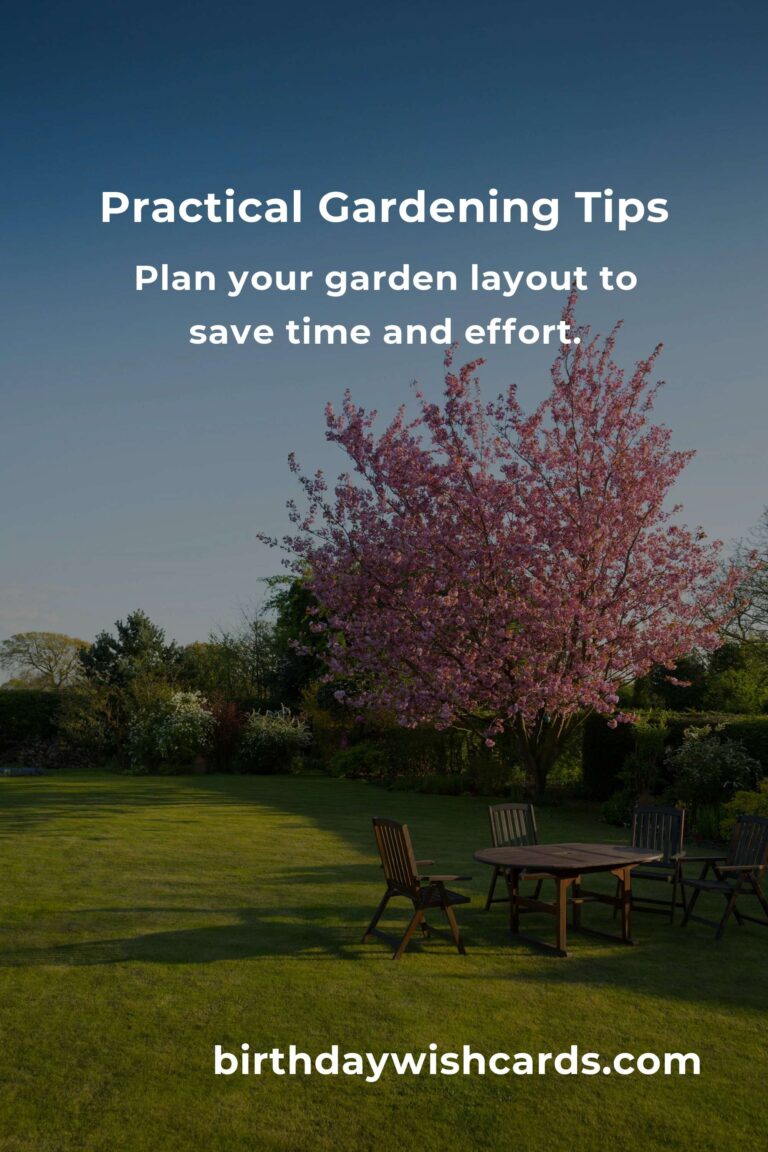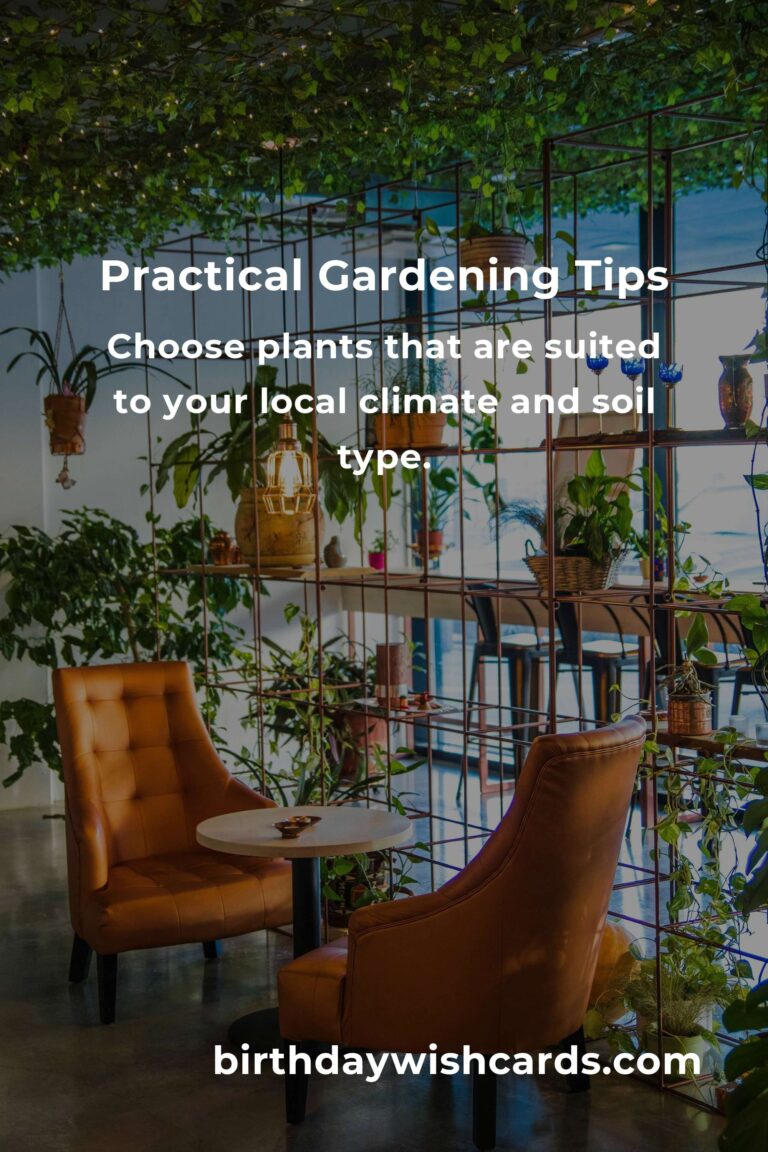
Gardening is a rewarding and relaxing hobby that anyone can enjoy. Whether you are a beginner or have been cultivating your garden for years, there are always new techniques to learn and improvements to make. In this comprehensive guide, we will explore 13 practical gardening tips that will help you create and maintain a flourishing garden.
1. Plan Your Garden Layout
Before planting, take the time to plan your garden layout. Consider the amount of sunlight each area receives, the types of plants you want to grow, and how much space they will need to thrive. A well-thought-out plan will save you time and effort in the long run.
2. Choose the Right Plants
Selecting plants that are well-suited to your local climate and soil type is crucial. Research the specific needs of each plant and choose varieties that will thrive in your garden’s conditions. This will ensure healthy growth and reduce the need for extensive maintenance.
3. Improve Your Soil
Healthy soil is the foundation of a successful garden. Test your soil to determine its pH and nutrient levels, and amend it with organic matter such as compost or well-rotted manure. This will improve soil structure, drainage, and fertility, providing a strong base for your plants.
4. Water Efficiently
Watering your garden efficiently is essential for plant health. Water deeply and infrequently to encourage roots to grow deeper into the soil. Use soaker hoses or drip irrigation systems to minimize water loss due to evaporation.
5. Mulch Your Garden
Applying a layer of mulch around your plants helps retain moisture, suppress weeds, and regulate soil temperature. Organic mulches such as straw, wood chips, or shredded leaves also break down over time, adding nutrients to the soil.
6. Prune Regularly
Regular pruning encourages healthy growth and improves the overall appearance of your plants. Remove dead or diseased branches, and trim back overgrown areas to maintain the shape and size of your plants.
7. Control Pests Naturally
Protect your garden from pests by using natural methods such as companion planting, introducing beneficial insects, and using homemade insecticidal soaps. These techniques are effective and environmentally friendly.
8. Rotate Your Crops
Crop rotation is an important practice to prevent soil depletion and reduce the risk of pests and diseases. Rotate your crops each season, and avoid planting the same species in the same spot consecutively.
9. Compost Kitchen Waste
Composting kitchen waste is a great way to reduce waste and create nutrient-rich compost for your garden. Use vegetable scraps, eggshells, and coffee grounds to enhance your compost pile.
10. Use Raised Beds
Raised beds can improve drainage, prevent soil compaction, and make gardening more accessible. They are especially beneficial for areas with poor soil quality or limited space.
11. Plant Perennials
Perennials are plants that return year after year, reducing the need for replanting. Incorporating perennials into your garden can save time and provide a reliable source of blooms and foliage each season.
12. Keep Learning
Gardening is a continuous learning process. Stay informed by reading gardening books, attending workshops, and joining gardening clubs. Sharing knowledge with other gardeners can also be a valuable resource.
13. Enjoy the Process
Finally, remember to enjoy the process of gardening. It is a wonderful way to connect with nature, relieve stress, and create a beautiful outdoor space. Take time to appreciate your hard work and the beauty of your garden.
By implementing these practical gardening tips, you can create a thriving garden that brings joy and satisfaction for years to come.
Gardening is a rewarding and relaxing hobby that anyone can enjoy. Plan your garden layout to save time and effort. Choose plants that are suited to your local climate and soil type. Healthy soil is the foundation of a successful garden. Watering efficiently is essential for plant health. Mulching helps retain moisture and suppress weeds. Regular pruning encourages healthy growth. Protect your garden from pests using natural methods. Crop rotation prevents soil depletion. Composting kitchen waste creates nutrient-rich compost. Raised beds improve drainage and prevent soil compaction. Perennials reduce the need for replanting. Enjoy the process of gardening.
#GardeningTips #HomeGarden #SustainableGardening #GardenPlanning #PlantCare

